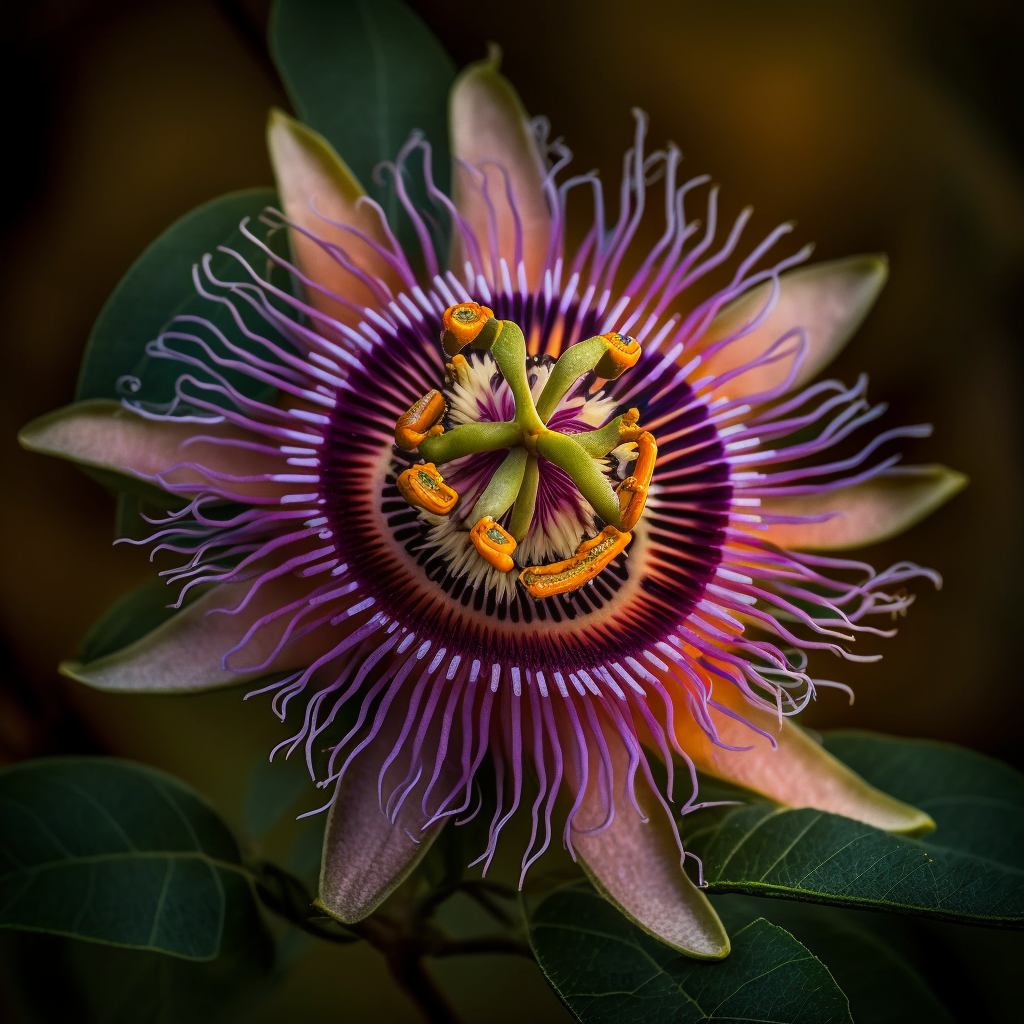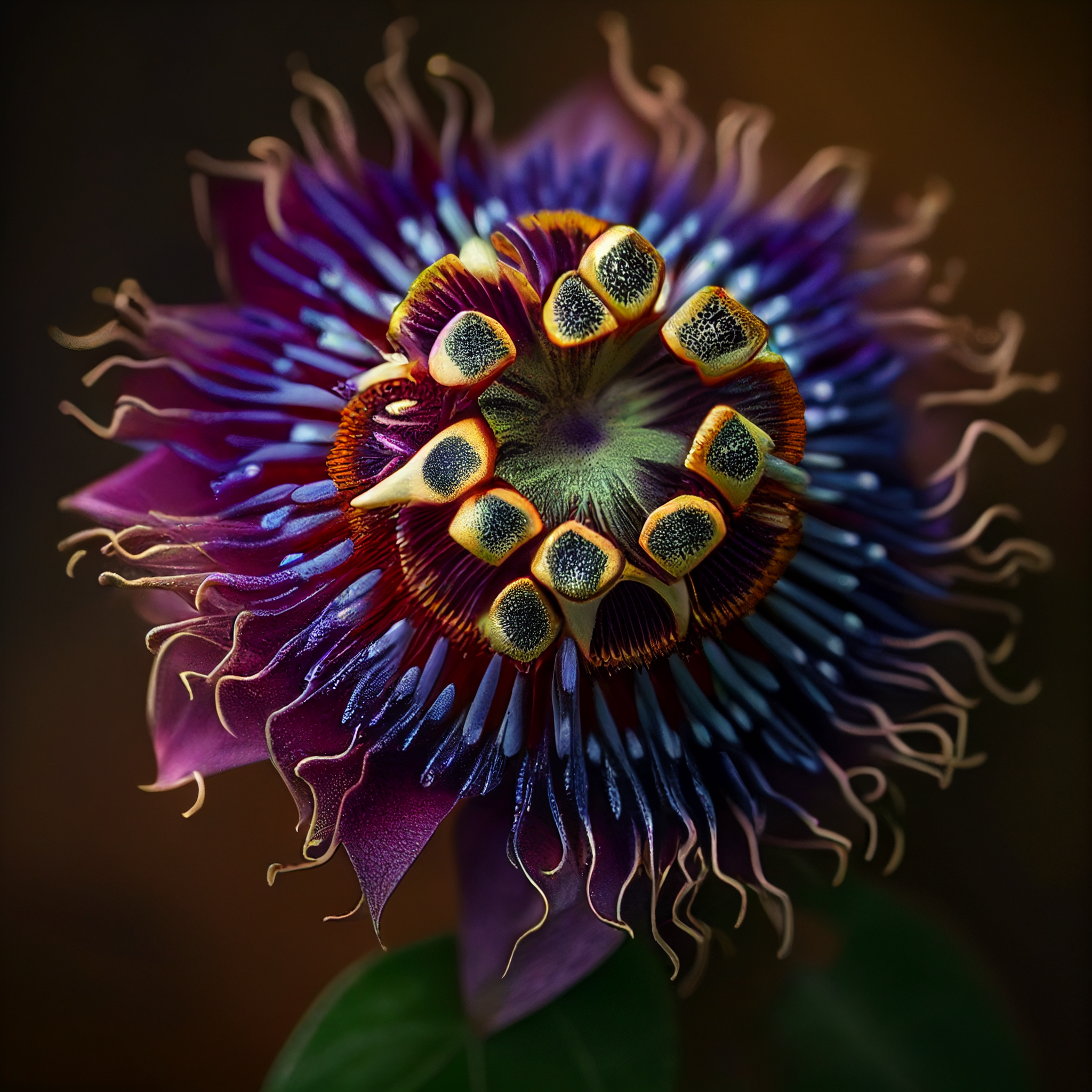
Introduction
Do you love beautiful and exotic flowers? Meet the passion flower! Native to Central and South America, this stunning plant is a sight to behold. With its complex structure and fascinating symbolism, the passion flower has captured the hearts of many. In this post, we'll explore the unique characteristics, medicinal uses, culinary delights, and symbolic meanings of the passion flower. Let's dive in!
The Passion Flower's Appearance
The passion flower is a vine that can grow up to 10 meters long. Its three-lobed leaves are a rich green, and its flowers are exotic and colorful. These beautiful flowers can be up to 10 cm wide, and have a complex structure with a ring of colorful filaments and a central stamen. They come in a variety of colors, including shades of pink, purple, blue, and white.

Introduction
The intricate design of the passion flower has made it a popular ornamental plant in gardens around the world. The beauty of the flowers is truly captivating and creates a stunning display. The leaves of the passion flower have a unique feature that distinguishes them from other plants. They have extra-floral nectaries that secrete sweet nectar, which is attractive to ants. The ants in turn protect the plant from herbivores and other harmful insects.
The Symbolism of the Passion Flower
The passion flower has religious significance for some Christians. The various structures of the plant represent elements of the crucifixion of Jesus Christ. For example, the ten petals and sepals represent the ten apostles who remained faithful to Jesus, while the five stamens represent his wounds. The filaments of the flower represent the crown of thorns, and the ovary of the flower represents the chalice used during the Last Supper.
 Photo by Nathan J Hilton: https://www.pexels.com/photo/a-beautiful-purple-passionflower-5943108/
Photo by Nathan J Hilton: https://www.pexels.com/photo/a-beautiful-purple-passionflower-5943108/
In addition to its religious symbolism, the passion flower has also been associated with love, friendship, and even the pursuit of scientific discovery. In Victorian times, the passion flower was used to symbolize a secret love, as the intricate design of the flower was seen as representing the complex emotions involved in a clandestine affair. The flower was also used to symbolize the search for knowledge, as the complex design of the flower was seen as representing the mysteries of the universe waiting to be uncovered.
Medicinal Uses of the Passion Flower
The passion flower has a long history of use in traditional medicine, particularly for its sedative and anxiolytic properties. The plant has been used to treat anxiety, insomnia, and seizures, among other conditions. Recent studies have also shown that the passion flower may have anti-inflammatory and antioxidant properties, as well as potential benefits for cardiovascular health.

The sedative properties of the passion flower come from a group of chemicals called flavonoids, which are present in the leaves and flowers of the plant. These chemicals help to calm the nervous system and reduce anxiety. Passion flower extracts have been found to be as effective as some prescription drugs in treating anxiety and insomnia, but without the side effects. The plant is also used in combination with other herbs to treat headaches, menstrual cramps, and muscle spasms.
Culinary Uses of the Passion Flower
The passion fruit, which is produced by some species of the passion flower, is a popular ingredient in many different cuisines. The fruit has a sweet and tart flavor, and it is often used in desserts, drinks, and sauces. Passion fruit is rich in vitamins A and C, as well as iron and potassium. The seeds of the passion fruit are also edible and have a crunchy texture.
Passion fruit can be used in a variety of culinary applications. In Brazil, for example, passion fruit mousse is a popular dessert that is made with passion fruit pulp, whipped cream, and condensed milk. In some Caribbean countries, passion fruit juice is a popular beverage that is often mixed with rum. In Southeast Asia, passion fruit is often used to flavor ice cream and other desserts.
In addition to its culinary uses, passion fruit is also used in the production of cosmetics and other beauty products. The oil extracted from the seeds of the passion fruit is used in many different skin care products due to its high vitamin content and antioxidant properties.
Overall, the passion flower and its fruit have a wide range of uses in various industries, from food and beverage to cosmetics and beauty. The plant's unique appearance and intriguing history have also made it a popular choice for gardeners and horticulturists around the world.